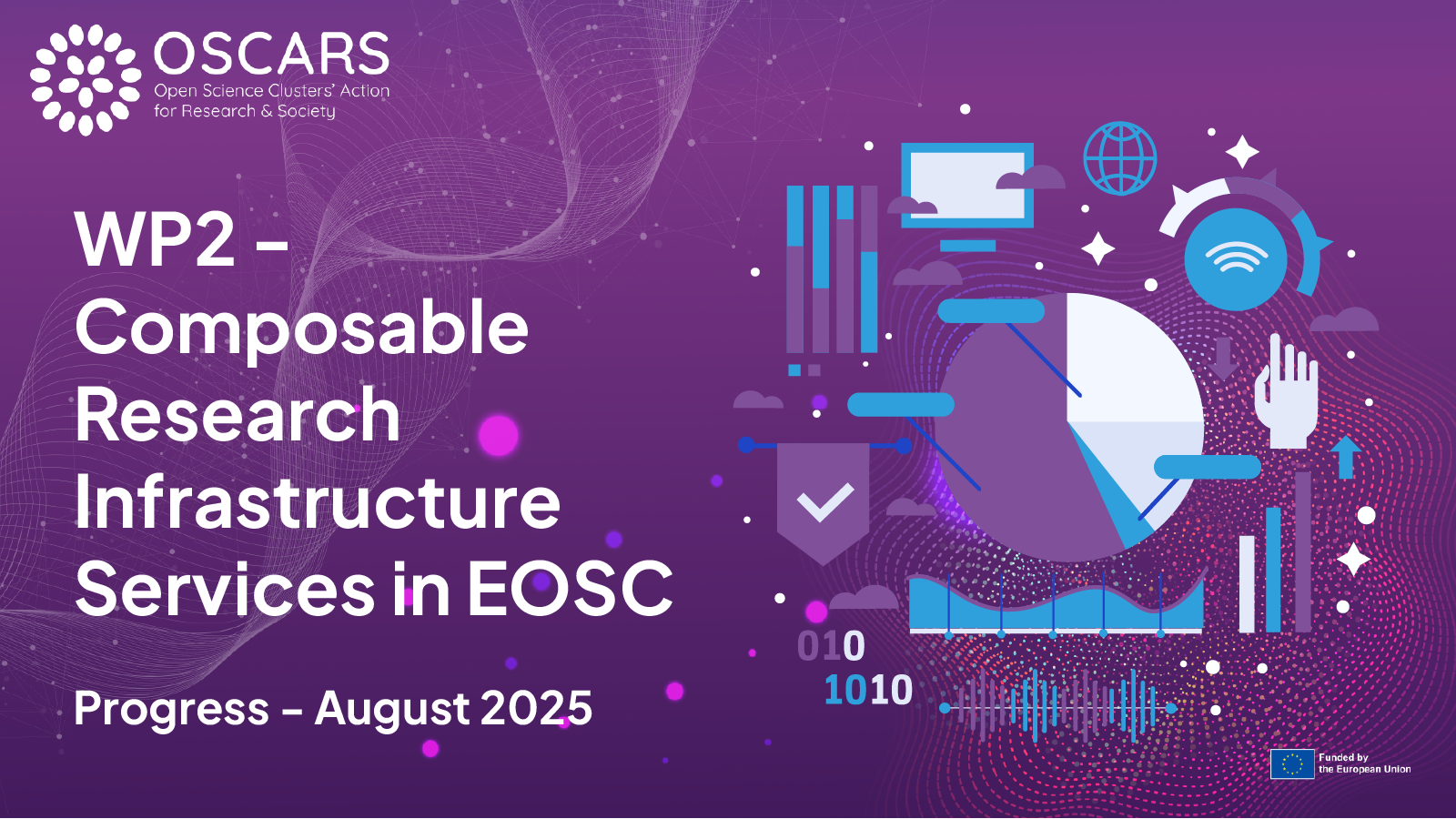
One of the main challenges for the Science Clusters, and specifically for OSCARS Work Package 2 – WP2, is increasing the data-driven scientific output across all domains through CODAS – Composable Open Data and Analysis Services. A CODAS, which might refer to service catalogues, data hubs and analysis platforms, is the result of the composability of a series of fundamental services for a user-centric open data research process.
Thus, OSCARS WP2 – Composable Research Infrastructure Services in EOSC, focuses on enabling interoperability of research outputs across the EOSC ecosystem by delivering a framework that allows research infrastructures’ (RIs) services to become composable.
In this context, composability refers to the ability to combine and integrate smaller and modular components or services into more complex systems, based on Open Science research practices. In a composable system, each component is designed to function independently but can be easily assembled or reconfigured with others to create new workflows, or applications.
In September 2024, the OSCARS Consolidation and Terminology Workshop was organised at DESY in Hamburg, focusing on WP2’s consolidation tasks, such as cataloguing the Services and Data Sources of each Science Cluster to identify which ones may be made “composable”. In fact, identifying the most relevant services and developing the appropriate composability demonstrators by cluster and across clusters will allow a wide range of research communities to document their best practices in using RIs’ services and data sources.
Later in February 2025, the WP published its first deliverable D2.1 - Clusters' Services and Data Sources Portfolios. The document summarises the outcomes of the work that has been done to catalogue, evaluate and undertake a gap analysis of the Services and FAIR data resources offered by the five Science Clusters. It also covers the initial versions of the Cluster catalogues, their mapping, consolidation and transition to Services and Data Source Portfolios, as well as an initial exploration of potential Composability Scenarios for each of the Clusters.
The final goal was to highlight possible common approaches, foster knowledge exchange between the Science Clusters and identify where the EOSC services can facilitate the composability of these offerings.
This work was undertaken in the context of the emerging EOSC Federation, where the Science Clusters and their related RIs play a crucial role.
The WP2 team has also developed a comprehensive Composability Action Plan, which provides an initial outline of the steps needed to implement the research scenarios described in D2.1 Clusters Services and Data Sources Portfolios as composable workflows using Open Science practices. The plan is currently in its implementation phase using the ELIXIR Data Lifecycle as a framework to build cross-domain bridges between the Science Clusters.
Moreover, the WP is organising a Composability and AAI Workshop to be held at CERN in September 2025, bringing together representatives of the Science Clusters and of the OSCARS funded Open Science projects, including service developers, infrastructure operators, and researchers to jointly review the progress on the composability development and deployment, and explore initial ideas for upcoming engagement activities.
Recognising the importance of sustainability, WP2 has been working with the EOSC Association to explore innovative funding mechanisms, such as credits-based models, which would ensure long-term viability of EOSC services while maintaining open and equitable access for researchers.
Finally, in the frame of WP2, OSCARS has been presented at a number of events, including the LEAPS General Assembly, the EOSC Beyond Kickoff, the WLCG/HSF workshop, the DHNB Conference and the Belgian Presidency Conference.